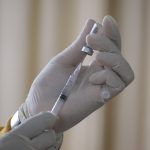Expected outcome
This topic aims at supporting activities that are enabling or contributing to one or several expected impacts of destination 3 “Tackling diseases and reducing disease burden”. To that end, proposals under this topic should aim for delivering results that are directed, tailored towards and contributing to some of the following expected outcomes:
- Researchers and developers make the best use of the state-of-the-art knowledge and resources for a fast and effective development of new therapies for rare diseases.
- Researchers and developers increase the development success rate of therapies for rare diseases by employing robust preclinical models, methods, technologies, validated biomarkers, reliable patient reported outcomes and/or innovative clinical trials designs.
- Developers and regulators move faster towards market approval of new therapies for rare diseases (with currently no approved treatment option) due to an increased number of interventions successfully tested in late stages of clinical development.
- Healthcare professionals and people living with a rare disease get access to new therapeutic interventions and/or orphan medicinal products.
Scope
Despite the considerable amount of knowledge that has been accumulated and the new orphan medicines developed in recent years, the number of available therapies for rare diseases remains low, as fewer than 6% of rare diseases have an approved treatment option.
The joint evaluation of the regulations on orphan medicinal products and paediatric medicines concluded that those regulations have boosted the development for new therapies for rare diseases but have not yet adequately managed to direct research and innovation in areas of greatest unmet medical need. Actually, there is an urgent unmet medical need for the development of therapies for rare diseases, where there is still no approved therapeutic option available.
Therefore, proposals should aim to develop therapies for rare diseases with no approved therapeutic option. Proposals should focus on group(s) of rare diseases with commonalities, such as shared biological features, possibly within the same and/or across different medical areas within the rare diseases landscape. Thus, proposals should not address a single disease only (for example with an Orphacode representing a single disease).
The therapies to be developed may include a broad family of therapeutic interventions such as small molecule(s), advanced therapy medicinal products, repurposing of existing medicinal products, including non-pharmacological interventions and/or their combinations, as relevant. Sex and gender aspects should be considered, where relevant. To ensure that the needs of people living with a rare disease are adequately addressed, the involvement of patient representatives in all phases of the research and development process is strongly encouraged. Rare infectious diseases and rare cancers are excluded from this topic and will not be considered.
The topic will support proposals covering several different stages in the continuum of the innovation pathway (i.e. translational, preclinical, clinical research, validation in the clinical and/or real-world setting etc.), as relevant. SME(s) participation is encouraged with the aim to strengthen the scientific and technological basis of SME(s) and valorise their innovations for the benefit of people living with a rare disease.
Deadline
01 February 2022 – first stage
06 September 2022 – second stage







Leave a Reply